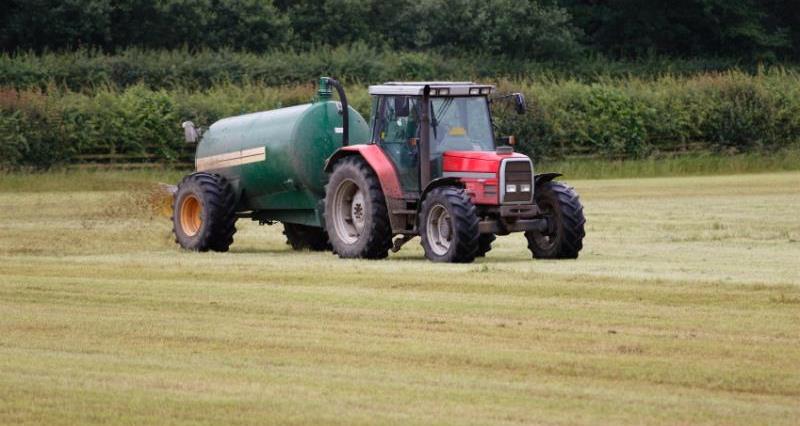What’s the issue?
Slurry and silage consistently generate the highest numbers of serious or significant incidents that the Environment Agency deals with in Cumbria and Lancashire.
In recent weeks, their officers have responded to concerning numbers of agricultural incidents, responding to overflowing stores, contaminated drains, broken seals and burst sluices, as well as general mismanagement of slurry spreading around surface waters.
The NFU has been informed that Environment Agency staff worked alongside farmers, contractors and partner agencies such as the Fire and Rescue service to stop pollution.
Slurry and silage are extremely destructive pollutants. Upon entry to a watercourse either can kill fish and other wildlife, and drastically reduce the quality of the water. Impacts on watercourses have been observed many kilometres downstream both during and after recent pollution incidents.
What does the Environment Agency do about it?
In any pollution, the Environment Agency’s first priority is to work with those concerned to stop it. In response to incidents recently, they have provided on-site advice to farmers to contain slurry in an emergency manner, including digging emergency trenches, plugging leaks and sealing drains.
In attending any incident, officers gather evidence of the pollution, and the impacts it has. This ranges from taking samples through to asking questions and taking photographs. They have a range of skilled and warranted staff qualified to assess different environmental impact and gather the appropriate evidence.
What happens after the incident?
Following the event, officers will conduct investigatory work. This depends on the situation, but can include follow up visits, formal interviews with the polluter and further sampling. Through reviewing evidence, they will establish if an offence has been committed under the legislation they regulate. They will determine their enforcement response to that offence in accordance with their own internal policy and guidance. They have a number of offence response options open to them, ranging from a warning, through to prosecution.
They are entitled to recharge for time spent in response to pollution events under the Water Resources Act 1991. This is known as the ‘polluter pays principle’. This will come in the form of an invoice to the polluter, and is entirely separate from any enforcement action. They recharge at a rate of £84 per hour, per member of staff. Recent recharge bills for farm based pollution events have ranged from hundreds, to several thousands of pounds.
If the Environment Agency believes there has been a breach of Defra Cross Compliance in relation to a pollution incident, they may report this to the RPA. This can lead to a reduced payment under the BPS scheme.
What can farmers do?
If you have custody of silage and or slurry, you need to ensure it is contained in line with the ‘Slurry, Silage and Agricultural Fuel Oil (2010)’ Regulations.
Silage
Before first cut silage takes place, the EA suggest the following takes place:-
• Floors and walls are checked for cracks and repairs are made good.
• Clean out all drains so that effluent can run to where it is supposed to.
• Make sure your effluent tank has sufficient capacity to receive the liquor.
Slurry
You can help protect against incidents and spills by conducting simple steps on your farm, such as:
* Checking for leaks on stores and make sure things like seals, bearings and sluices are sound and maintenance is up to date.
* Checking surface water drains - never allow slurry or dirty water to enter these.
* Spread responsibly - adhere to buffer zones around springs and watercourses, and follow the code of good agricultural practice
The Environment Agency is always happy to offer advice and guidance to farmers who are unsure of how best to manage slurry, or have a specific issue they would like assistance with.
If you have any enquiries please telephone the Environment Agency on 03708 506 506.
